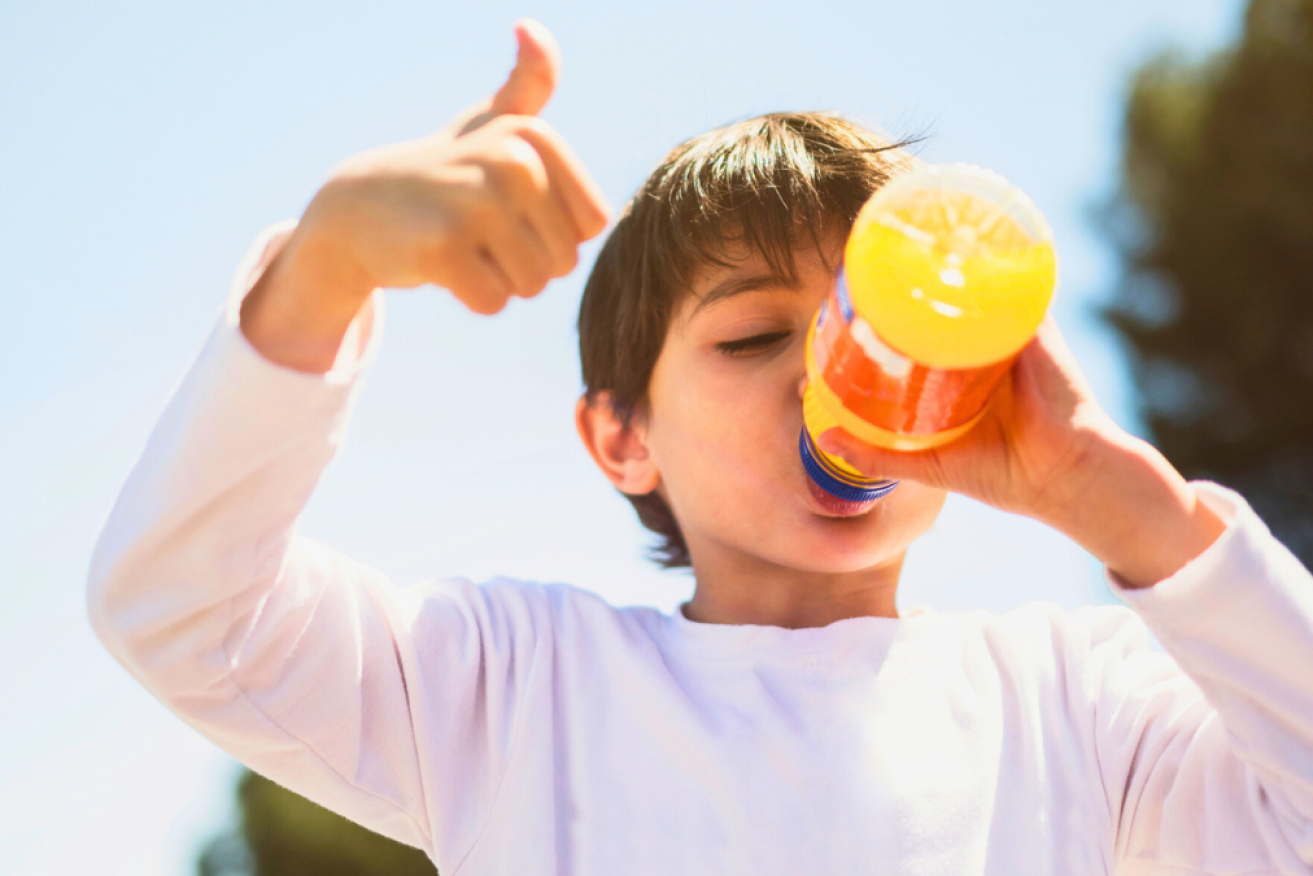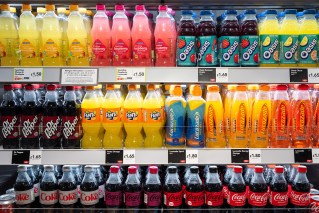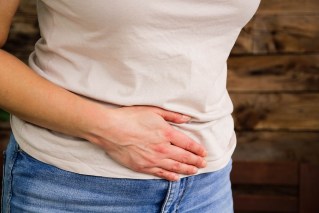How sweet it isn’t: Sugary drinks increase the risk of liver cancer


Not to be a downer, but the more sugar-sweetened drinks you consume, the greater the risk of all manner of cancers. Photo: Getty
Are sugar-sweetened drinks the new smoking? The gloomy piling up of bad-news research suggests so.
The short version: Daily consumption of beverages sweetened with sugar significantly lifts your risk of … well, death and disability from a variety of causes.
Sugar-sweetened beverages include soft drinks, fruit drinks, sweet flavoured waters, sports drinks, sweetened tea, coffee drinks, energy drinks, and electrolyte replacement drinks.
The Australian Medical Association wants sugar-sweetened beverages heavily taxed, in the same way that cigarettes are taxed to discourage their use. For health reasons.
The argument is a simple one
Most Australians are either overweight or obese. This puts them at increasing risk of developing diabetes. Or dying from a stroke, heart attack or cancer.
Sugary drinks are a “major contributor” to the crisis.
How?
Sugary drinks contain large amounts of free sugar – “delivering a high number of liquid calories but providing almost no nutritional benefit”. There are eight to 12 teaspoons (33 to 50 grams) of sugar in the average 375ml can of soft drink.
The AMA estimates that Australians drink at least 2.4 billion litres of sugary drinks every year. That’s enough “to fill 960 Olympic-sized swimming pools”.
Young males are the biggest consumers in Australia.
The latest bad news
A large new study has found “an increased risk of liver cancer and death from chronic liver disease among women who consume sugar-sweetened beverages on a daily basis”.
Specifically, the study found that women who consumed one or more sugar-sweetened beverages daily had “an 85 per cent higher risk of liver cancer and 68 per cent higher risk of chronic liver disease mortality compared to those who had fewer than three sugar-sweetened beverages per month”.
This was an observational study – from Harvard-affiliated Brigham and Women’s Hospital – that involved nearly 100,000 post-menopausal women from the Women’s Health Initiative (WHI).
The WHI is a long-term national health study that focuses on strategies for preventing heart disease, breast and colorectal cancer, and osteoporosis in post-menopausal women.

Do these kids know there is 33 to 50 grams of sugar in the average can of soft drink?
Participants were followed for a median of more than 20 years.
Researchers looked at self-reported liver cancer incidence and death due to chronic liver disease, such as fibrosis, cirrhosis, or chronic hepatitis. These reports were verified by medical records or the National Death Index.
The researchers believe “this is the first study to report an association between sugar-sweetened beverage intake and chronic liver disease mortality”.
This shouldn’t be a surprise
Sugar-sweetened beverages are full of … well, added sugar.
And the chain of bodily destruction caused by too much added sugar starts in the liver. And ends up wrecking your heart health.
“Your liver metabolises sugar the same way as alcohol, and converts dietary carbohydrates to fat,” said Frank Hu, professor of nutrition at the Harvard TH Chan School of Public Health.
Over time, this can lead to a greater accumulation of fat.
This may turn into non-alcoholic fatty liver disease. And non-alcoholic fatty liver disease is a contributor to diabetes, which raises your risk for heart disease.
Indeed, as I previously reported, if you developed non-alcoholic fatty liver disease this week, then there’s a good chance that within the next 10 years your heart won’t be pumping adequate blood through your body.
You’ll also be at greater risk of developing a number of cancers … including liver cancer.
More on the heart
As a Harvard explainer reports:
Consuming too much added sugar “can raise blood pressure and increase chronic inflammation”. These are both pathological pathways to heart disease.
Excess consumption of sugar, “especially in sugary beverages, also contributes to weight gain by tricking your body into turning off its appetite-control system because liquid calories are not as satisfying as calories from solid foods”.
This is why “it is easier for people to add more calories to their regular diet when consuming sugary beverages”.
Summing up, Dr Hu said: “The effects of added sugar intake – higher blood pressure, inflammation, weight gain, diabetes and fatty liver disease – are all linked to an increased risk for heart attack and stroke.”

Obesity often goes hand in hand with fatty liver disease, which in turn predicts heart failure.
In a 2014 study, Dr Hu and colleagues found that, over the course of the 15 years, people who got 17 per cent to 21 per cent of their calories from added sugar had a 38 per cent higher risk of dying from cardiovascular disease.
This was compared with those who consumed 8 per cent of their calories as added sugar.
“Basically, the higher the intake of added sugar, the higher the risk for heart disease,” Dr Hu said.
One final sour finding
The Harvard TH Chan School of Public Health has been busy looking at sugar-sweetened beverages from multiple angles.
One of the mysterious and alarming health trends to emerge in recent years is an increase in early-onset colorectal cancer. This refers to people under the age of 50 developing this cancer.
The big question is: Why is it happening?
The obesity crisis is most likely to blame. And one of the drivers of the obesity crisis, as the AMA has pointed out, is sugar-sweetened beverages.
A 2021 Harvard study examined data from 96,000 participants in the Nurses’ Health Study II.
It found that women who had consumed more than two sugar-sweetened beverages a day in young adulthood had more than double the risk of developing early-onset colorectal cancer when compared with women who drank less than one sugary drink a week.
According to the study, each 8-ounce sugary drink (about 236ml) per day is linked to a 16 per cent higher risk of early-onset colorectal cancer.
Among teenagers who drank sugary beverages, the risk was even greater:
Each daily serving consumed between ages 13 and 18 is associated with a 32 per cent higher risk of early onset of the disease.
The findings need to be confirmed by other studies. Still, it’s worth having a nice cup of tea (milk, no sugar) while thinking about it.








